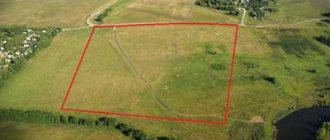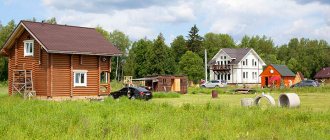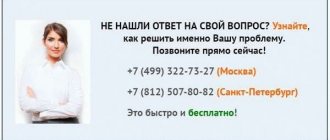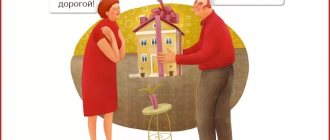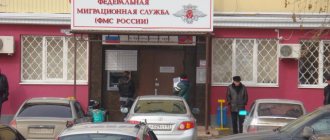Having bought land in a country village, residents were left without communications and in unpaid debt
Agro-club “Usadba” is a holiday village in the Makhin farmstead of the Olginsky rural settlement. One of many that now offer comfortable and affordable housing to city dwellers tired of noise and overcrowding.
If you believe the advertising posters along the road, in such a village there is not life, but a dream: all communications have been built, there is a recreation area... Even the gates and the trailer at the entrance to the village are painted with hearts. Alas, as often happens, life behind the beautiful façade is not nearly as attractive.
Let's start with health...
According to the stories of local residents, in 2012 advertisements appeared on the Internet for the sale of magnificent plots in a quiet place remote from the city. It was reminiscent of a utopia - an economy class village with premium living conditions: closed territory, security, maintenance and cleaning of the territory, lighting, availability of all communications.
Even the gates and trailer at the entrance to the village are painted with hearts
Well, how can you not respond to such an offer?
True, there was one condition: when purchasing a plot, newly minted land owners were asked to write an application to join the DNP (dacha non-profit partnership - author's note) and pay targeted fees for the installation of communications - there was no water or gas in the village. At first the amount was 200 thousand rubles.
“I started building in 2014, there was nothing here except electricity,” says local resident Yuri. “We drilled a well on the site ourselves. This was enough for our construction needs. In 2015, I completed the house and moved in a year later. There was still no water or gas, although the village was promised to be completely completed by the end of 2015.
Residents remember how well it all started: the founder and chairman of the board of the DPP, Olga Fedotova, announced in 2013 that she had received permission to build a gas and water pipeline in the village.
This is what the village under construction looked like in 2014
DNT - what is it?
DNT - what is it? Nowadays, many people, approximately seventy million citizens of the Russian Federation who live in settlements in different regions of the country, own suburban areas.
As a rule, they are combined to facilitate surveillance of the territory and ensure security.
The most common forms of such a community include SNT (can be deciphered as a garden non-profit partnership), DNP (dacha non-profit partnership) and DNT (dacha non-profit partnership).
- Decoding DNT
- Purpose of the lands of the dacha partnership
- Individual management
- Advantages and limitations of DNT
- Other land categories
Decoding DNT
Dear readers!
Our articles talk about typical ways to resolve legal issues, but each case is unique. If you want to know
how to solve exactly your problem - call the following numbers:
8 — Moscow 8 — St. Petersburg
or if it’s more convenient for you, use the online consultant form!
All consultations with lawyers are free.
DNT (deciphering - dacha non-profit partnership) is one of the most common ways of uniting summer residents who own a plot of land in a certain territory.
In order to join the partnership, those interested must follow the rules from the corresponding step-by-step instructions and transfer the necessary contributions.
According to the current legislation, the form of organization of the DNT is practically no different from the DNP. However, they have one significant difference, which lies in the different ownership of common property.
Partnership under the terms of the DNT implies the division of property into several separate categories:
- Products and devices that are purchased with funds from a designated contribution. They are considered the property of each participant in this land partnership. This means that absolutely all plot owners have the opportunity to use the purchased items.
- Devices, as well as devices that can be created using a special fund consisting of entrance and membership fees, as well as various incomes. Such products belong only to legal entities.
Purpose of the lands of the dacha partnership
According to the rules established by the law “On gardening, vegetable gardening and dacha non-profit associations of citizens,” the DNT organization is structured in such a way that land is taken for the construction of residential buildings.
In addition, the owner of the plot has the right to obtain registration.
Also, if necessary, it is allowed to erect various buildings for agricultural purposes on the territory, organize places for recreation, grow trees and bushes, berries, potatoes and all kinds of melons.
It should be noted: the owner of the plot is not obliged to build a house on it and register as a member of this partnership.
On common lands owned by a certain DNT, it is allowed to develop access roads and create various infrastructure facilities. Every decision regarding the use of common property must be made at special meetings where all members of the society must be present.
The results of such meetings must be recorded in the official minutes. Without this document, any actions of the chairman of the board, as well as its members, will be deprived of legal force, so they can be challenged in court without any problems.
Individual management
DNT differs from some other forms of organizing dacha plots in that citizens are given the right to manage their land plots without being a member of this organization.
Individual business owners get the opportunity to operate the partnership’s infrastructure.
Payment for the provision of various tools and other agricultural devices must be made under an agreement that the owner of the site signs with the board of this DNT.
It should be taken into account: the difference between the amount of payments for the owner of a plot that is not part of the organization and the contribution of a member of the partnership can be quite large.
Each owner of a land plot independently decides what status he wants to have - this means that he, at will, becomes a member of the DNT or not.
Attention! There is no catch to being a DNT member.
Its main advantage is that a person has the opportunity, if necessary, to use various agricultural implements and other tools, and seek help from the chairman or other members of this society.
An important advantage of membership in a dacha non-profit partnership is that a person does not have to worry about the safety of his property. In addition, if necessary, he can use the necessary tools without purchasing them.
However, there are also disadvantages: regular contributions and attendance at meetings are required.
Other land categories
In addition to DNT, there are other categories of land, the abbreviation of which is deciphered as follows:
- SNP – garden non-profit partnership;
- SDT - garden and dacha partnership;
- DNP – dacha non-profit partnership;
- IZHS – individual housing construction;
- Private subsidiary plot – personal subsidiary plot.
Each type of community differs from the other in the way it organizes the general economy.
DNT is a dacha non-profit partnership, which is a fairly popular way of combining dacha plots. It has its own characteristics, certain advantages and disadvantages. Each person independently decides whether he wants to become a member or not, which is very convenient.
Watch the video in which a specialist explains what DNT is and its differences from SNT:
Attention!
Due to recent changes in legislation, the information in this article may be out of date! Our lawyer will advise you free of charge - write your question in the form below:
Source: https://sovetnik.guru/nedvizhimost/zemlya/snt-chto-eto-takoe-dnt.html
On a bird's license
Construction work really began after some time: workers were digging trenches and laying pipes for gas and water. The village developed, albeit slowly.
In 2021, when all the promised deadlines had passed, the first unrest began. All this time, the leaders of the DNP did not provide financial reports on the construction of communications, they did not disclose the final cost of the projects and periodically demanded additional payment. The contribution from each resident of the DNP increased first to 300, and then 400 thousand rubles.
Some paid to the DNP account, some - directly to Olga Fedotova, some - to the co-founder of the DNP Nikolai Karpechenko. However, the receipts did not indicate where the money was going. Karpechenko, according to rumors, is Olga Fedotova’s father. There were three founders in total. The third is Alexey Fedotov, according to the residents of the DNP, Olga’s husband.
The peak of public outrage came in December last year: the promised roads in the village were not built, cars got stuck in mud and snow. The water supply lines in the village were completed, but the water intake was made from wells. The quality of the water left much to be desired: it is industrial water, not drinking water. In addition, in order to connect to the water supply, the DPP leadership demanded that residents pay extra for the construction of individual wells.
“We were told that we would have to pay around 19 thousand rubles to connect to the water supply network,” recalls village resident Sergei Tishchenko. - For what, why? After all, we paid targeted contributions, which included the construction of a water pipeline. They explained to us that the water supply line itself was built at the expense of contributions, while the DPP supposedly built the wells at its own expense. But why exactly this amount? The cost of materials there is no more than 2.5-3 thousand rubles.
Since January 2021, construction of the gas pipeline has stopped due to lack of money. Residents demanded a general meeting in the hope of receiving a report from the chairman on the work done and the money spent.
It took place in June. But the board members did not answer questions and recused themselves.
After the selection of a new board and the transfer of documents, interesting facts emerged. In particular, the minutes of the general meeting, which allegedly took place in April. According to the documents, 105 people were present, whose names suspiciously matched those who were at the June meeting.
The minutes included decisions: to accept these 105 people as members of the DPP and to increase the amount of targeted contributions to 400 thousand rubles - for those who did not pay in full by December 31, 2021.
Residents claim they know nothing about the April meeting. They have a suspicion that the protocol was issued retroactively. It was a surprise for many that until April 2021 they were not members of the partnership. That is, despite the fact that they wrote an application to join the DPP and received membership cards, in the village they lived like birds: without the opportunity to participate in decision-making.
And in fact, only four people were listed as members of the DPP: Olga and Alexey Fedotov, Nikolai Karpechenko and Olga Pilipeyko, who was chosen as an auditor.
“After the board recused itself, we elected a new chairman - Maxim Bunyaev,” recalls Sergei Tishchenko. – Fedotova was obliged to hand over the documents to the new board. She passed them on for a month and a half. At the same time, there is no electronic database, the computer was written off and there was nothing left of it, and she handed over the broken disk to 1C-Accounting. Now we cannot even restore the readings of electric meters!
How to create a dacha cooperative
Creation of a horticultural, gardening or dacha non-profit association
1. A gardening, vegetable gardening or dacha non-profit association is created on the basis of a decision of citizens as a result of the establishment or as a result of the reorganization of a gardening, vegetable gardening or dacha non-profit association.
2. The number of members of a gardening, gardening or dacha non-profit association must be at least three people.
3. The constituent document of a horticultural, gardening or dacha non-profit association is the charter approved by the general meeting of the founders of the non-profit association.
4. The charter of a horticultural, gardening or dacha non-profit association must indicate:
organizational and legal form;
name and location;
subject and goals of activity;
the procedure for admission to membership of such an association and withdrawal from it;
the rights and obligations of such an association;
rights, duties and responsibilities of members of such an association;
procedure for establishing the amount of membership fees. This procedure may include, among other things, establishing the size of the membership fee depending on the area of the land plot of a member of such an association and (or) the total area of real estate owned by him and located on this land plot;
(paragraph introduced by Federal Law dated July 3, 2016 N 337-FZ)
the procedure for making entrance, membership, target, share and additional contributions and the responsibility of members of such an association for violation of obligations to make these contributions;
the procedure for the participation of a member of such an association in work performed collectively on the basis of a decision of the general meeting of members of such an association or a meeting of authorized representatives or on the basis of a decision of the board of such an association;
the structure and procedure for the formation of management bodies of such an association, their competence, the procedure for organizing activities;
composition and competence of the control bodies of such an association;
procedure and conditions for conducting correspondence studies (by survey);
(paragraph introduced by Federal Law of November 22, 2000 N 137-FZ)
the procedure for forming the property of such an association and the procedure for paying the cost of part of the property or issuing part of the property in kind in the event of a citizen leaving the membership of such an association or the liquidation of such an association;
terms of remuneration for employees who have entered into employment contracts with such an association;
the procedure for changing the charter of such an association;
the grounds and procedure for expulsion from members of such an association and the application of other sanctions for violation of the charter or internal rules of such an association;
the procedure for reorganization and the procedure for liquidation of such an association, the procedure for its entry into associations (unions) of horticultural, gardening or dacha non-profit associations, the procedure for opening its representative office;
the procedure for maintaining the register of members of a horticultural, gardening or dacha non-profit association (hereinafter also referred to as the register of members of the association);
(paragraph introduced by Federal Law dated July 3, 2016 N 337-FZ)
the procedure for providing members of such an association with information about the activities of the management bodies and control body of such an association.
(paragraph introduced by Federal Law dated July 3, 2016 N 337-FZ)
The charter of a horticultural, gardening or dacha consumer cooperative also specifies the responsibility of the members of such a cooperative for its debts.
The charter of a horticultural, gardening or dacha non-profit partnership also specifies the procedure for the formation of a special fund, which is the property of such a partnership.
5. The provisions of the charter of a horticultural, gardening or dacha non-profit association cannot contradict the legislation of the Russian Federation and the legislation of the constituent entities of the Russian Federation.
6. Decisions of the governing bodies of a horticultural, gardening or dacha non-profit association cannot contradict its charter.
Location of dacha cooperatives on the chita map
How great it is to wake up not to the noise of city streets, but to the singing of birds and the early sun peeping through the windows. Then go out onto the porch, breathe in the fresh, fragrant air, touch the leaves of the plants filled with dew. This is possible, and this is not a fairy tale.
An amazing place, located near your city, location of dacha cooperatives on the cheat map. It is here, in the quiet of a small, cozy country house, that you can truly relax.
Only here you will receive a charge of optimism for your next working moments.
Human life is inextricably linked with work and various responsibilities. Sometimes you want to forget everything in the world and relax for your own pleasure.
The best vacation is relaxing in the fresh air, away from the noise and bustle of the city. The best assistant in this matter is the sale of dachas in Kaluga on Avito and Slando.
Almost all citizens living in the post-Soviet space have it, and it has become an integral attribute of recreation in our time.
You need to prepare for a trip out of town. If it is unbearably hot outside and the sun is very hot, then you need to take sunscreen with you.
Also, if it is tick season, it would be a good idea to treat clothing and skin with insecticidal preparations.
If the sale of a summer house in the Soksky district of Samara is not equipped with a central water supply, then you should take a sufficient supply of water. Don't forget about medications.
What is a dacha cooperative and how to organize it?
They can always come in handy.
All the nuances of the location of dacha cooperatives on the cheat map
In the fresh air and away from the city, all problems and difficulties no longer seem so insoluble. The brain receives enough oxygen, and fresh thoughts and ideas appear in the head.
Sunbathing allows the body to obtain vitamin D, which is synthesized only under bright light. It’s very good if you can buy chairs for your dacha in Minsk next to a body of water.
Swimming in the fresh air is much healthier than in a pool.
Excellent lifehacks for connecting a generator at the dacha, dachas for sale in Krasnokamensk, dacha in Sumy on the lake shore, dacha plots in Belgorod, train schedule from dacha to Thais, cottage in the dacha massif, snip for the construction of dacha houses, lining for a stove at the dacha, is it possible to plant there is an oak tree at the dacha, buy a dacha in Berdsk with winter accommodation.
Nothing lifts your spirits like fresh meat cooked over real coals. Just the smell of aromatic barbecue makes you forget all this city bustle. Meat cooked with your own hands and eaten straight from the skewer is always tastier than that in the city.
Also, if you buy a dacha in the Vitebsk region inexpensively, you can be pleased with the abundance of vegetables and fruits that do not contain nitrates and pesticides.
What could be better than a salad for lunch, the ingredients for which just half an hour ago hung on branches and bushes and were saturated with the rays of the morning sun?
© da4a.tw1.ru
The procedure for creating a dacha consumer cooperative
Questions and orders The former chairman of the dacha cooperative refuses to transfer documents to the new chairman
Author of the question -
Bonded contract?
Lack of communications and financial reporting are not all the problems that residents had to face. Now it is clear to them that the cheapness of land in the village was just a bait. Having become residents of the DNP, they fell into real bondage.
They paid for utilities directly to the DNP. In turn, the DPP entered into agreements with other organizations. Upon request to the bank, it turned out that 1.2 million rubles were withdrawn from the DNP accounts in the period from June 17 to July 2, after the change of board, in favor of a certain Selsky Vek LLC. These dates are important: on June 17, Olga Fedotova left the post of chairman, and on July 2, Maxim Bunyaev received all the documents from the tax office and legally replaced her in this post.
Moreover, the partnership turned out to owe Rural Age 32 million rubles. Where did this amount come from, and for what? After conducting their own investigation, residents found 89 empty plots in the village, which, according to the cadastral extract, are in shared ownership of a certain Roman Vasilenko. 80% of each plot belongs to him, 20% to Fedotova. Target fees have not been paid for 72 of these plots. Their total amount approximately corresponds to the amount of debt to Rural Century.
What Vasilenko’s role is in this story is still anyone’s guess. According to open data, he is the founder of TSN “Agro-Club Usadba”, that is, the full namesake of the DNP. What kind of organization is this? According to residents, TSN exists only on paper. We tried to get clarification from Roman himself, but he refused to comment.
As it turned out, DNP signed an agreement with Rural Century for maintenance, sanitary maintenance and routine repairs of public property. In practice, the relationship is built like this: the company issues DPP invoices, and residents must pay them, even if the fact of the work is in doubt.
“They charge a fee to clear the weeds and mow the lawn for several months, but look around you! – resident of the village Yuri Lisachenko is indignant. - Yes, during this time it was possible to make a golf course here, but for some reason I don’t see it.
The most unpleasant thing in the agreement was the clause that “Rural Century” has the right to seize public property from the village in case of debt for services and to retain it until the debt is fully paid.
Registration of Cooperatives
Share contributions are used to conduct trade, procurement, production and other activities in order to satisfy the material and other needs of its members. A consumer cooperative can exist both as an independent organizational and legal form of a legal entity (for example, housing construction cooperatives), and in the form of a consumer society (district, city, etc.), and as a union of consumer societies (district, regional, regional etc.), which is a form of association of consumer societies. The name of a consumer cooperative must contain an indication of the main purpose of its activities, as well as the word “cooperative” or the words “consumer society” or “consumer union”. These requirements are reflected in the legislation on cooperation.
• A copy of the main document of an individual acting as a person acting without a power of attorney on behalf of a legal entity, for each of the persons acting as a founder and/or a person acting without a power of attorney on behalf of the legal entity. (if the individual is a citizen of the Russian Federation). • A notarized copy of a document established by federal law or recognized in accordance with an international treaty of the Russian Federation as an identification document of a foreign citizen acting as a founder and/or a person acting without a power of attorney on behalf of a legal entity for each of the persons acting as founder and/or person acting without a power of attorney (if the individual is a foreign citizen). • A notarized copy of a document (if such certification is necessary) provided for by federal law or recognized in accordance with an international treaty of the Russian Federation as an identification document of a stateless person acting as a founder and/or a person acting without a power of attorney on behalf of a legal entity on each person acting as a founder and/or a person acting without a power of attorney on behalf of a legal entity. (if an individual is a stateless person) • Certificate of assignment of a TIN for individuals acting as founders and/or persons acting without a power of attorney on behalf of a legal entity (if there is a TIN). • Documents confirming the location address of the legal entity being created. • Documents confirming the availability of property and its monetary value (if the authorized capital is contributed by property).
We recommend reading: How to file for divorce
Common property – in private hands
The Bolsheviks thought: the success of the revolution was ensured if the post office and telegraph were captured. Life has shown that to conquer a territory it is enough to master the water supply system.
In the case of the DPP, it was almost completely in the hands of the Rural Century. As a result of cooperation, the LLC transferred ownership of the property, which, according to information on the partnership website, was originally the common property of the DNP - a pumping station, a water treatment station and a water tower. How did this happen, why? The new board is looking for answers to these questions.
The balance sheet of the DNP now includes only internal water supply. After a request to the cadastre, it also turned out that the premises for engineers and all recreation areas are located on plots of land owned by Olga Fedotova. It turns out that the property that summer residents considered common is actually in private hands.
In addition, it turned out that the residents of the village bear an additional financial burden: the water canal, which was dug in the surrounding area back in the forties of the last century, is listed on the balance sheet of the DNP. No one understands why the former board accepted it on its balance sheet, since they also have to pay for its maintenance.
The village residents we interviewed are confident that Selsky Vek LLC is directly connected with the previous board of the DPP. And that's the connection.
Age of "Athena"
In 2004, it appeared in Rostov. In 2009, the name of the company changed to KPU (Professional Services Company) LLC Afina. According to open databases, the general director of the company was Alexey Fedotov. The list of founders included him and Olga Fedotova. In March 2014, the organization changed its name to Agro-Club LLC. And two days later, the already familiar DNP “Agro-Club Usadba” was registered. Both companies are located at the same legal address. The composition of the company’s founders also did not differ much, only in the second case Nikolai Karpechenko was added to the Fedotov couple.
The connection between “Athena” and “The Manor” is clear, but what do “Athena” and “The Rural Age” have in common? The list of Athens employees on the website shows manager Anna Zheltukhina. She is also the director and owner of Selsky Vek LLC. The company was registered on June 28, 2012, three months after the appearance of Agro-Club and Usadba.
It is no secret to the residents of Usadba that Anna Zheltukhina and Olga Fedotova are close friends.
The breadth of the Rural Century's profile is surprising. The enterprise has 48 types of activities: from excavation work and growing grain crops to advertising and entertainment services. This gives them freedom of any action within the village.


